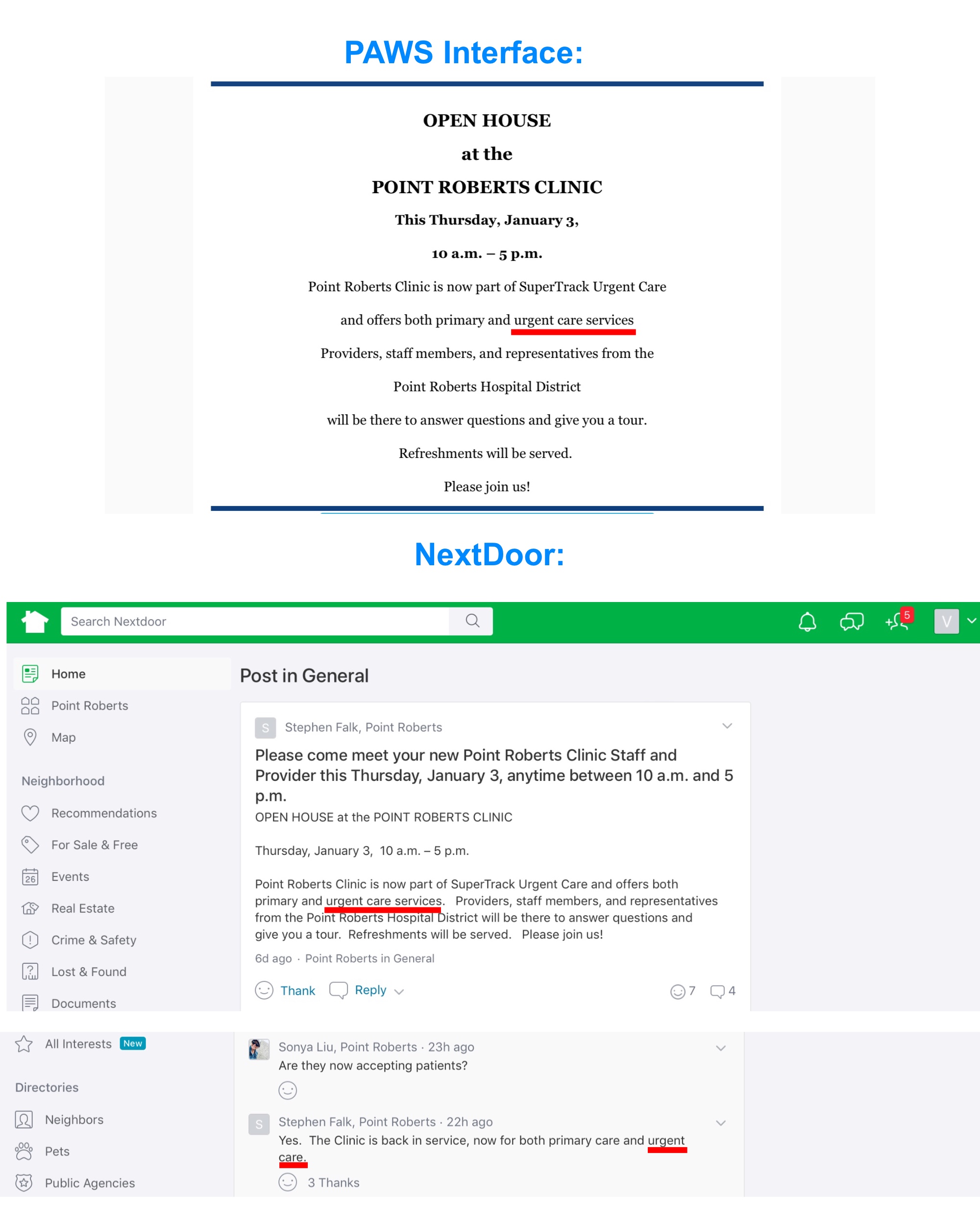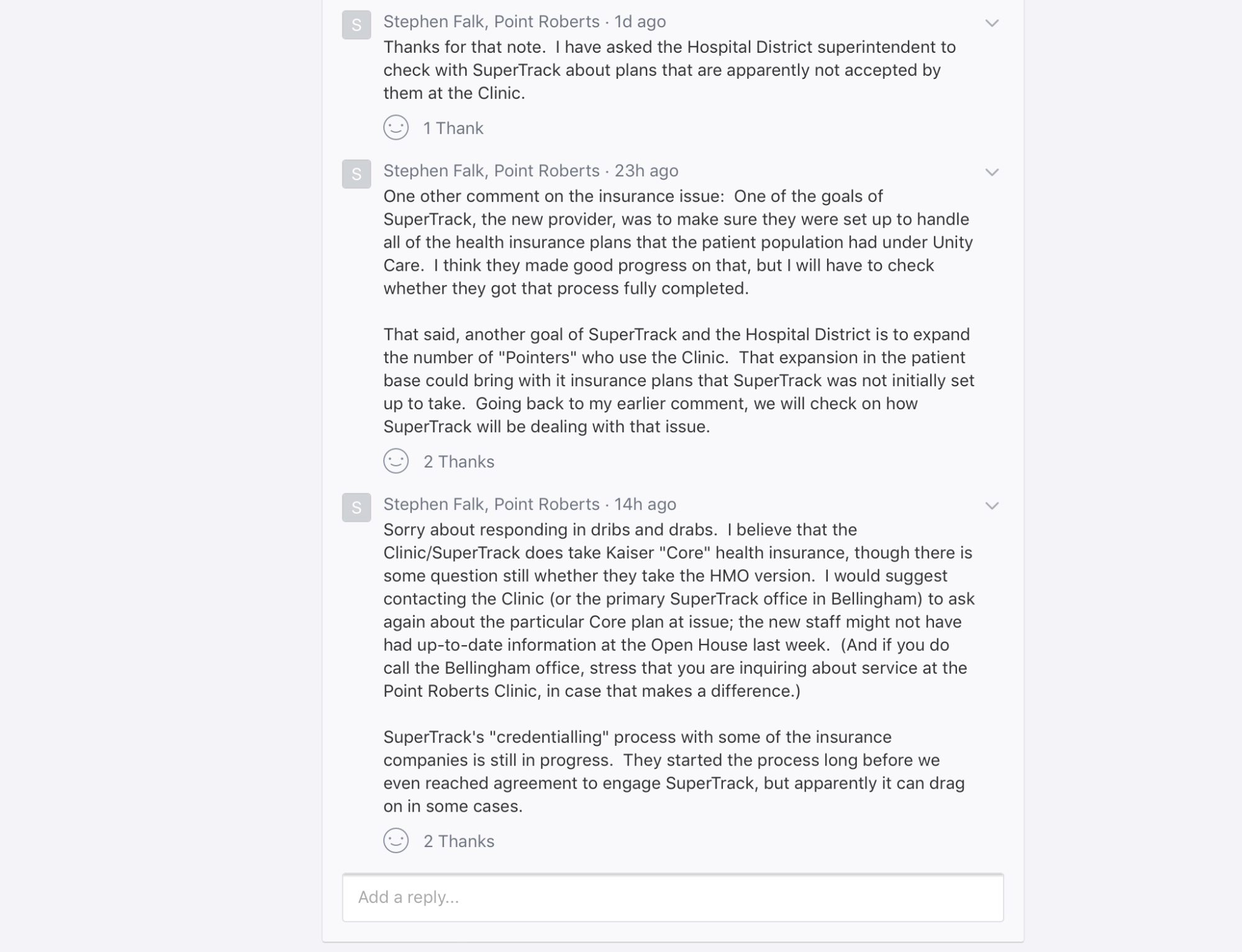
Under New Management
Besides staffing issues, the most common complaints we heard about the clinic when Unity Care ran it were from people who were turned away when they needed urgent care. We heard that people had been told some variation of, "This is not a walk-in clinic." People were also upset that they were required to name Unity Care and its nurse practitioner as their primary care provider before being treated.
At the September 2017 Hospital District meeting, we asked Unity Care COO Shanon Hardie if it was their policy to not provide urgent care here. She said that they do provide urgent care, and made each clinic employee present at the meeting pledge then and there that they would honor that commitment. Even so, we continued to hear, over and over again, about people who were not Unity Care primary care patients being turned away when they needed urgent care, and who felt they had been mistreated in that process.
There are two important facts to keep in mind. First, Unity Care was required to provide urgent care to Point Roberts in their contract with the district. Yet when people who were denied treatment complained, Unity Care dismissed them and minimized their complaints. Adding insult to injury, the district failed to support those people who were denied treatment, failed to enforce the contract, defended Unity Care's practices, and vilified us when we raised the issue with them.
And second, the clinic is heavily subsidized by Point Roberts property taxes, so all taxpayers should have had equal access to its services regardless of whether they were primary care patients or not.
With patient counts declining, we couldn't understand why so many people who were seeking care were being turned away. It finally became clear when Unity Care announced they were leaving the Point, and Executive Director Des Skubi wrote:
"As a Federally Qualified Health Center, our mission is to break down barriers to primary care for underserved and disadvantaged populations... We have found, however, that as a whole, Point Roberts’ patients are more likely to be commercially insured or covered through Medicare and are frequently only seeking urgent care."
In a nutshell, what Skubi is saying is that Unity Care's business model conflicted with the needs of this community and the terms of its contract with the district. Unity Care's business model depends on its role as a primary care provider. Urgent care visits from people who are not primary care patients dilute their statistics and negatively impact their reimbursements.
When the clinic started, Interfaith's (Unity Care's original name) focus was more on serving the community than on serving its own financial interests. They provided urgent care and were available after hours and for house calls when needed. Since Des Skubi took over, their focus has gradually shifted more to serving their bottom line, and their services here became more restrictive.
After Unity Care announced they were leaving, Superintendent Barb Wayland said at the July 2018 district meeting, "I'm choosing to look upon this as an opportunity for us to re-create the clinic again into a model that meets the needs of more people in more ways...."
The Hospital District is emphasizing the fact that the clinic now provides urgent care:

And Commissioner Stephen Falk is answering questions and responding to issues on NextDoor:

It's clear that Stephen and Barb are changing things for the better at the Hospital District. The district now understands the contract they have with the provider (the previous board did not), is now involved in running the district and the clinic (the previous board was not), is responding to questions and concerns (the previous board and superintendent did not), and is trying to meet the needs of the majority of the community instead of just those of the provider.
Yay!
New comic every Monday